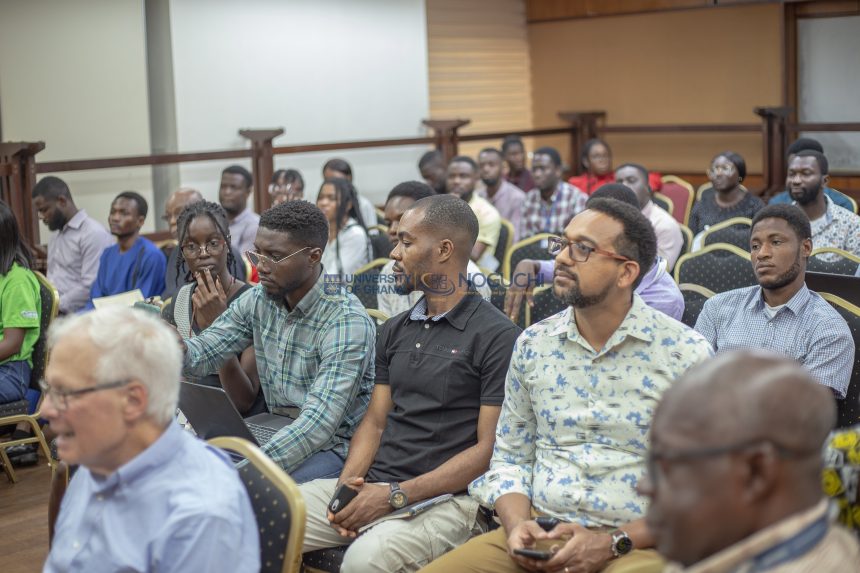The Noguchi Memorial Institute for Medical Research (NMIMR) has commenced its Third Country Training course on ‘Enhancing Laboratory Skills for Infectious diseases in West African countries’.
The training course was developed by the Institute in collaboration with the Japan International Cooperation Agency (JICA) to provide a comprehensive and in-depth laboratory-based training program in modern diagnostic techniques and preparedness for disease outbreaks in Africa.
Speaking at the opening ceremony held at the Noguchi Conference Hall on Monday, 2nd October 2023, Acting Director of the Institute, Prof. Michal Ofori, in his remarks emphasized that the institute, as parts of efforts to handle any global health issue that might arise in Africa, will continue to train and equip health researchers in the continent.
“I believe and hope that this training will continue into the foreseeable future until all staff working in our lab are trained to combat the infectious diseases and deadly viruses that threaten our region and the world. It is crucial that you recognize the success of this training, especially because the technicians who have previously received our training have aided in the fight against pandemics and epidemics like ebola and Covid-19 in their home countries.”
Prof. Ofori therefore urged the trainers to take time and train the participants to get the needed skills to help prevent the spread of viral infectious diseases in the future.
“As a college, we are proud that we are devoted their time and efforts to enhancing the skills of scientist and laboratory workers in the region and if we keep this up, our region and continent will be well equipped to handle any global health issue that may arise. I urge the trainers to take time to teach our trainees the needed skills to detect and curb some of these virial infections to prevent wide spread in the future.”
Also speaking at the ceremony, Deputy Chief Representative of the Japan International Cooperation Agency (JICA), Mr. Oda Ryotaro highlighted how participants from the training course are making great impacts in their countries over the years since participating in the course.
He further expressed his outfit’s continuous commitment in helping build health capacity in West Africa.
“We know the Third Country training has been very impactful; since the completion of their training, some foreigner participants have been promoted and given supervisory role in the institutions. A decent public health emergencies such as the COVID-19 as well as outbreak of diseases such as monkey pox also show the importance of having resilient health system, especially one equipped with a surveillance and biomedical research system. It has therefore become imperative to continue to re-strengthen critical capacities laboratory workforces across the West Africa Sub-Region.”
In an engagement with UniversNews, some participants from various African countries shared their expectations for the eight weeks training course ahead of them and how they would want to impact their home countries.
“One of the expectations [I have] is that I am going to gain new techniques and new laboratory skills. Once I gain them, I believe it will be of tremendous help to my country because when I go back, I am going to implement those new skills that I am going to learn and that is going to help our people in order to improve the testing system.”
“At the end of this training, I would like to improve my knowledge about a specific points such as molecular biology on COVID-19, lassa fever, etc and when I return to my country, I would like to create a kind of network with molecular biology scientists and grow to extend. Currently, there are two or three cases of lassa fever in the north of my country so I think I can invest in this field with another scientist.”
Fifteen trainees were selected from African countries including Ghana, Benin, Burkina Faso, Cote d’Ivoire, Guinea, Liberia, Nigeria, Sierra Leone and Togo, comprising seven females and eight males. The training course will last for eight weeks where participants will be equipped with skills in modern diagnostic techniques and preparedness for disease outbreaks.
–
Story by: John Collins Kaledzie | univers.ug.edu.gh

